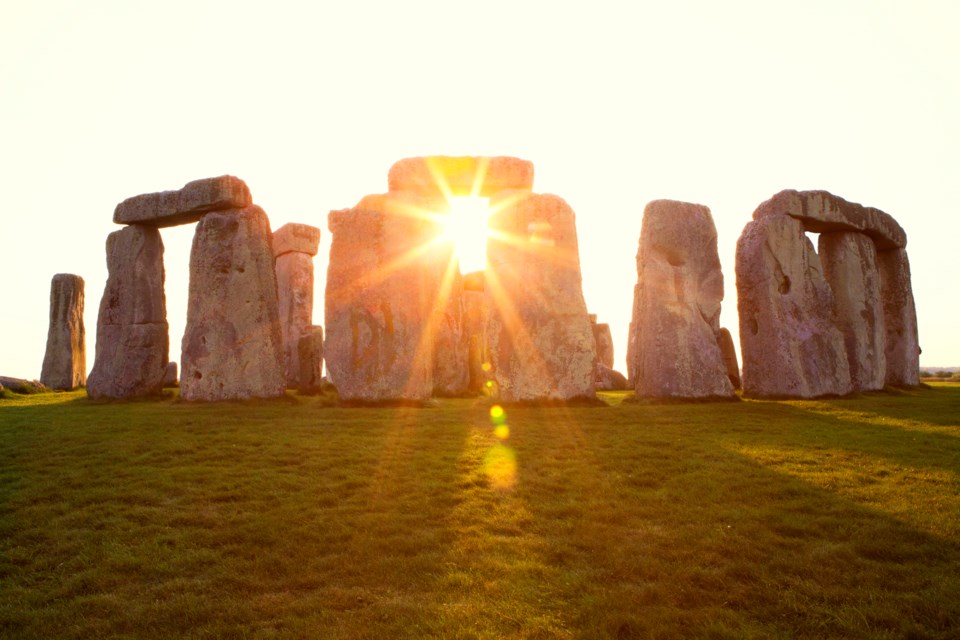Every year, thousands flock to Stonehenge, some camping overnight to secure a spot, to celebrate a celestial event that marks the beginning of summer.
But this year, the ancient stone circle will remain empty of crowds amid the COVID-19 pandemic. Instead, English Heritage, the organization which manages the site in Wiltshire, southwestern England, will livestream the summer solstice – both sunset and sunrise – on its Facebook page.
The decision to cancel the event – which takes place on or around June 21 – was made “for everyone’s safety and wellbeing,” the organization announced on social media last month.
English Heritage added that the decision was made after consulting with emergency services and the druid and pagan community.
The summer solstice sunset will take place today, June 20 at 9:43 p.m. BST (1:26 p.m. PST), and the solstice sunrise will occur at 4:52 a.m. BST Sunday, June 21 (8:52 p.m. PST, Saturday June 20). The livestreams will also be saved as videos on English Heritage's Facebook, so you can also watch or catch up at a later time.
To be notified of when the livestreams start, you can either follow English Heritage's Facebook page, or tap "get reminder" on specific the event posts.
It’s also possible to step inside the stone circle ahead of the live broadcast, through English Heritage’s live, online Stonehenge Skycrape feature. Stonehenge has been closed to the public since March 18.
Summer solstice marks the longest day in the year for the Earth’s northern hemisphere – which is tilted towards the sun – and the shortest for the southern hemisphere. As the Earth continues its orbit around the sun, the northern hemisphere tilts away, and the days grow shorter.
Stonehenge was constructed around 2,500 BC by agriculturalists, and is linked to the movements of the sun – the site was carefully positioned in relation to the summer and winter solstices.
According to English Heritage, there is little evidence as to what ceremonies took place at Stonehenge, but archaeological excavations show the site was kept clean and separate of everyday debris.
While the changing seasons would have been immensely significant to the farmers, herders and pastoralists who built Stonehenge, the heritage organization says the monument was likely more than simply a calendar and had spiritual significance, and the dates could also have been important times of the year to remember the dead.



